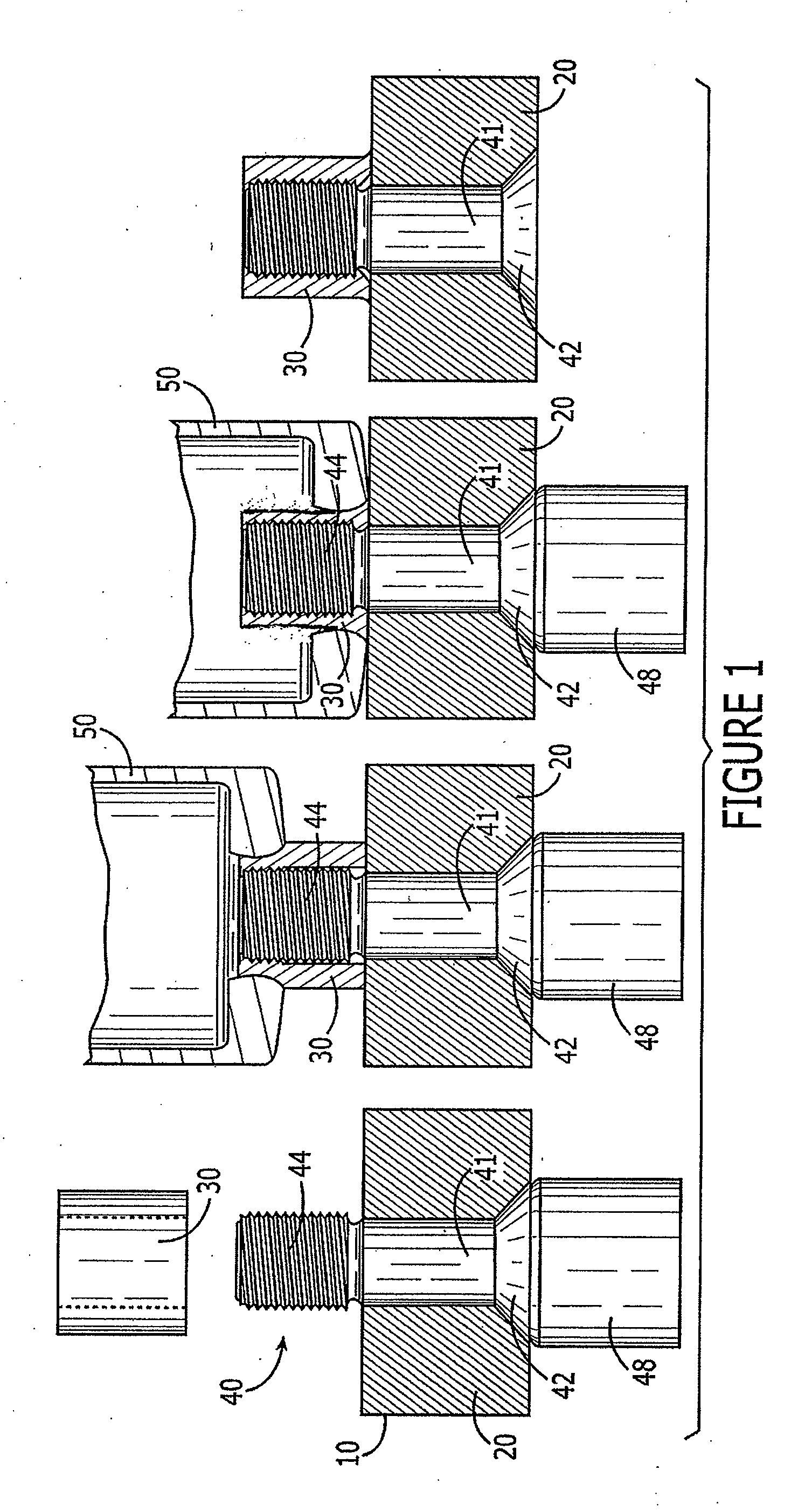Hybrid Fastening System
a technology of high-strength titanium or titanium alloy, applied in the direction of threaded fasteners, screwing, manufacturing tools, etc., can solve the problems of re-torqueing requirements, lack of ability to achieve adequate clamping, and cost challenges in the installation of threaded nuts/collar components, etc., to achieve efficient and effective assembly processes, increase the effect of rate and increase of automation
- Summary
- Abstract
- Description
- Claims
- Application Information
AI Technical Summary
Benefits of technology
Problems solved by technology
Method used
Image
Examples
examples
[0038]Two sheets of 2024-T3 clad aluminum-alloy material having an e / D=2.0 were tested in conjunction with two 3 / 16-inch diameter threaded pins having a minimum shear strength of 95 ksi in accordance with NASM 1314-4 static lap shear strength test procedure in order to determine the shear strength of the titanium-alloy threaded pins.
[0039]The test specimens were assembled by G-1700 Drivmatic™ automated assembly equipment. All installed swage collars were inspected with go-no-go profile gages developed by the fastener supplier. The male fastener components were 3 / 16-inch diameter, pre-coated Ti6Al-4V titanium-alloy material, flush tension head threaded pin fasteners assembled with female pre-coated Ti3Al-2.5V titanium-alloy material swage collar components. The fastener holes were drilled with 100° flush crown tension head configurations. The fasteners were installed in interference-fit holes having diameters in the range of 0.1850 inch to 0.1880 inch. Upset forces were approximately...
PUM
| Property | Measurement | Unit |
|---|---|---|
| curing temperature | aaaaa | aaaaa |
| elevated temperature | aaaaa | aaaaa |
| diameters | aaaaa | aaaaa |
Abstract
Description
Claims
Application Information
 Login to View More
Login to View More - R&D
- Intellectual Property
- Life Sciences
- Materials
- Tech Scout
- Unparalleled Data Quality
- Higher Quality Content
- 60% Fewer Hallucinations
Browse by: Latest US Patents, China's latest patents, Technical Efficacy Thesaurus, Application Domain, Technology Topic, Popular Technical Reports.
© 2025 PatSnap. All rights reserved.Legal|Privacy policy|Modern Slavery Act Transparency Statement|Sitemap|About US| Contact US: help@patsnap.com



